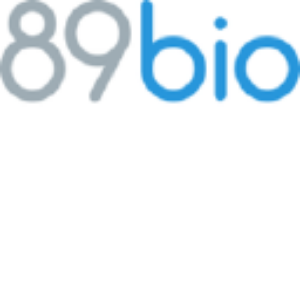89bio To Present Data From Phase 1b/2a Study of BIO89-100 In NASH at AASLD’s The Liver Meeting® 2020
Rhea-AI Summary
89bio, Inc. (Nasdaq: ETNB) announced the presentation of promising clinical data for its drug BIO89-100 targeted at treating nonalcoholic steatohepatitis (NASH) during The Liver Meeting Digital Experience™ 2020 from November 13-16. Results from a Phase 1b/2a study revealed significant reductions in liver fat via MRI-PDFF, with favorable safety and tolerability profiles, suggesting potential best-in-class dosing. The study demonstrated robust efficacy with both weekly and biweekly dosing, highlighting the drug's potential as a treatment in a field lacking approved options.
Positive
- Significant reductions in liver fat observed in Phase 1b/2a study.
- Favorable safety and tolerability profile for BIO89-100.
- Potential for every two weeks dosing, indicating best-in-class dosing.
- Robust clinical performance supports further development.
Negative
- None.
News Market Reaction 1 Alert
On the day this news was published, ETNB gained 0.56%, reflecting a mild positive market reaction.
Data tracked by StockTitan Argus on the day of publication.
SAN FRANCISCO, Nov. 02, 2020 (GLOBE NEWSWIRE) -- 89bio, Inc. (Nasdaq: ETNB), a clinical-stage biopharmaceutical company focused on the development and commercialization of innovative therapies for the treatment of liver and cardio-metabolic diseases, today announced that clinical data from its Phase 1b/2a study evaluating BIO89-100, a long-acting glycoPEGylated FGF21 analog, in patients with nonalcoholic steatohepatitis (NASH) will be presented in a late-breaking poster at The Liver Meeting Digital Experience™ 2020 of the American Association for the Study of Liver Diseases (AASLD) to be held November 13 - 16. 89bio will also be presenting a poster on preclinical data demonstrating that BIO89-100’s receptor activation profile was similar to that of native FGF21.
The late-breaking poster details the promising clinical profile of BIO89-100 in NASH as measured by MRI-PDFF and other liver-related metabolic parameters, a favorable safety/tolerability profile, and potential best-in-class dosing. The presentation details are as follows:
Abstract Number: LP34
Poster Title: BIO89-100 Demonstrated Robust Reductions in Liver MRI-PDFF, Favorable Tolerability and Potential for Every 2 Weeks Dosing in a Phase 1b/2a Placebo-Controlled, Double Blind, Multiple Ascending Dose Study in NASH
Presenting Author: Dr. Rohit Loomba, Director, NAFLD Research Center, Professor of Medicine, University of California at San Diego
Abstract Number: 514
Poster Title: BIO89-100, A Novel Glycopegylated Fibroblast Growth Factor 21 (FGF21), Activates FGF Receptors (FGFR) 1c, 2c, and 3c but not FGFR4 in L6 Cells Transfected With the Four Different Human FGFRS and Beta Klotho (KLB)
Presenting Author: Dr. Moti Rosenstock, Preclinical Development, 89bio, Inc.
About NASH
NASH is the most advanced stage of nonalcoholic fatty liver disease (NAFLD). It is a complex metabolic disorder that causes fat buildup in the liver, as well as inflammation and eventually fibrosis, and it can worsen to cirrhosis and liver failure. NASH affects more than 16 million adults in the United States, and by 2030 its prevalence is predicted to increase by 63 percent. The exact cause of NASH is unknown, but it is commonly found in people with obesity and type 2 diabetes. While there are currently no approved treatments, the biopharmaceutical industry is actively involved in addressing this unmet medical need.
About the Phase 1b/2a Study
This clinical study was a multicenter, randomized, double-blind, placebo-controlled, multiple ascending dose-ranging trial. It was designed to assess the safety, tolerability, and PK properties of BIO89-100 as well as change in liver fat measured by MRI-PDFF and key biomarker assessments in subjects with biopsy-proven NASH with fibrosis or subjects with phenotypical NASH (PNASH). PNASH was defined as patients with steatosis greater than
About BIO89-100
BIO89-100 is a glycoPEGylated analog of FGF21 being developed for the treatment of NASH. 89bio has optimally engineered BIO89-100 using a proprietary glycoPEGylation technology to balance efficacy and longer dosing interval. Recent Phase 1b/2a data show BIO89-100 demonstrated a favorable safety and tolerability profile and robust reductions in liver fat and key lipid markers when dosed weekly (QW) or once every two weeks (Q2W). BIO89-100 is also being developed for the treatment of severe hypertriglyceridemia (SHTG) and is currently in a Phase 2 trial.
About 89bio
89bio is a clinical-stage biopharmaceutical company focused on the development and commercialization of innovative therapies for the treatment of liver and cardio-metabolic diseases. The company’s lead product candidate, BIO89-100, is a specifically engineered glycoPEGylated analog of FGF21. BIO89-100 is being developed for the treatment of nonalcoholic steatohepatitis (NASH) and severe hypertriglyceridemia (SHTG). 89bio is headquartered in San Francisco with operations in Herzliya, Israel.
Investor Contact:
Ryan Martins
Chief Financial Officer
investors@89bio.com
Media Contact:
Peter Duckler
773-343-3069
pduckler@w2ogroup.com






